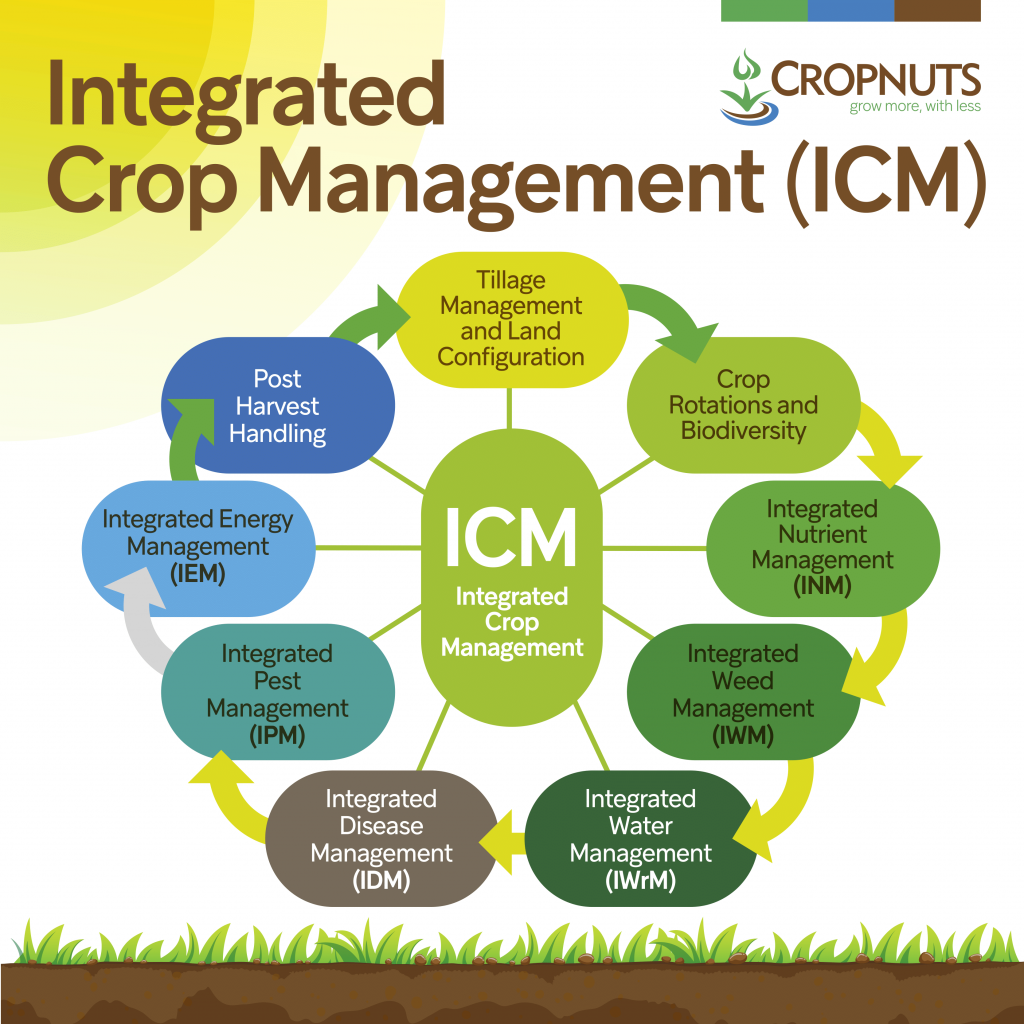
Integrated Crop Management (ICM) is a holistic approach that combines various crop production methods and management practices to maximize crop productivity while minimizing adverse environmental impact. ICM emphasizes data-driven decision-making, sustainable practices, and a balance between traditional and innovative farming techniques to ensure long-term farm viability. The key components of ICM include:
Healthy crops start with healthy soil. ICM promotes regular soil testing and tailored soil amendments to improve soil structure, nutrient availability, and organic matter content. The goal is to create a fertile foundation that supports robust crop growth season after season.
Effective pest and disease control is critical to protecting crop yields. ICM integrates biological controls, such as beneficial insects, with cultural practices and targeted chemical interventions to reduce overreliance on pesticides and minimize adverse environmental impact. Regular monitoring and early intervention are key to maintaining crop health.

Weeds compete with crops for essential nutrients, water, and light. ICM employs a combination of crop rotation, cover cropping, mechanical weeding, and, when necessary, herbicide use to manage weeds effectively. This integrated approach reduces reliance on chemicals while protecting your crops.
ICM encourages efficient irrigation practices to optimize water use and ensure crops receive the moisture they need at critical growth stages. Using soil moisture sensors and drip irrigation systems helps optimize irrigation schedules and prevent over-watering or drought stress. Managing water wisely helps achieve “more crops from fewer drops” and supports sustainable crop production.
Providing crops with the right nutrients at the right time is crucial for healthy growth and high yields. ICM uses data from soil tests and plant tissue analysis to develop nutrient management plans tailored to the specific needs of each crop, minimizing waste and reducing nutrient leaching into aquatic ecosystems.
Integrated Crop Management (ICM) is more than just a set of practices—it’s a holistic approach that combines science, experience, and sustainability to improve farming outcomes. By adopting ICM, farmers and agronomists can enhance crop productivity, reduce costs, and sustainably transition towards chemical-free farming. For expert guidance and tailored solutions to meet your specific needs, contact our experts at support@cropnuts.com.
Grow more with less.
#SustainableFarming #CropProtection #SoilHealth #WaterManagement #Agronomy
Order our services and get to know how to improve your soil for better yeilds.